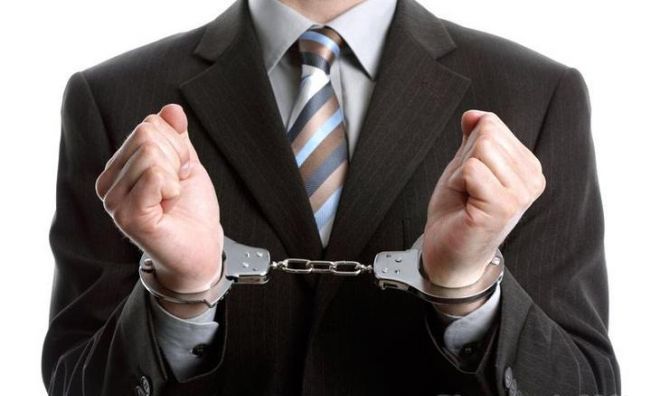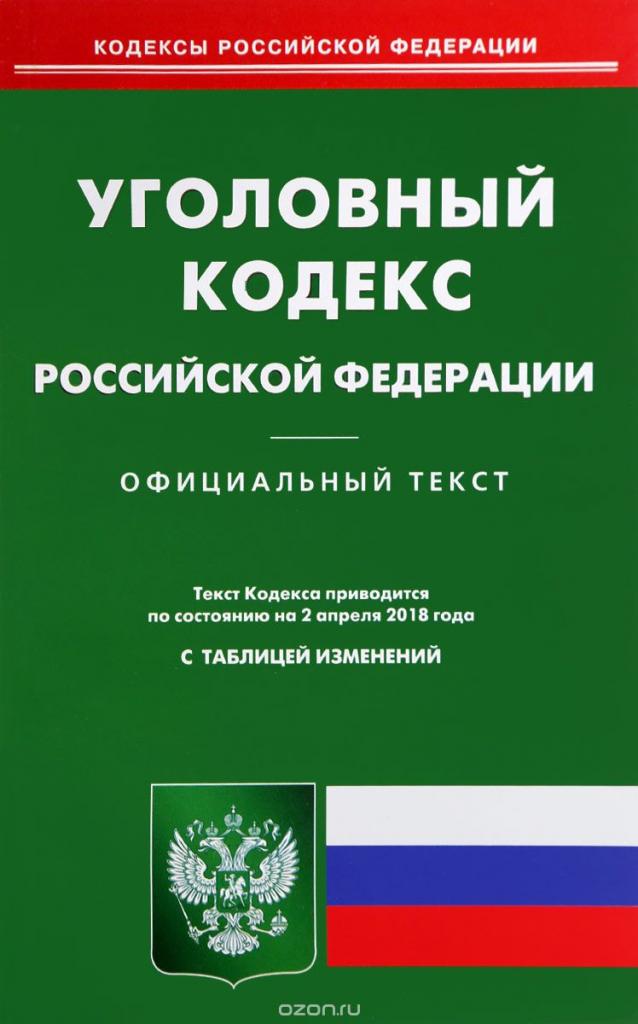Abuse of official position occurs when a person holding a certain position in an organization or body, with selfish motives, performs any actions in relation to another person. These steps are expressed in providing him with unreasonable privileges and benefits. In return, the offender receives intangible or tangible goods.
Concept of an official
Abusing a position of an official type is a crime only if committed by an official. This definition includes representatives of government agencies in the field of their work.
The following citizens belong to this category:
- employees of law enforcement agencies (regardless of department and level) who occupy certain positions in this structure (police, prosecutor's office, investigative committee);
- employees of state bodies at the federal, regional or municipal levels, some positions in the government (regional, state), city halls, administrations;
- representatives of government bodies performing other functions in these structures (heads of personnel-type divisions, heads of the department of the economy).

A citizen may be vested with authority on a permanent or temporary basis. In particular, jurors are considered as temporary officials, who are considered as such only at the time of the trial.
The scope and list of responsibilities as representatives of government structures is determined by clauses of the employment contract, orders or instructions. For example, according to the norms of federal laws on the police, on service in the internal affairs bodies, police officers, within the framework of official powers, are entitled to use service weapons for the following purposes:
- to prevent potential danger from third parties;
- to detain an armed criminal (offender);
- during the operation, which allows the use of special tools.
If during the use of weapons or the commission of other actions relating to the powers of a citizen, abuse of official position occurs, the guilty person shall be liable for this according to the norms of the Criminal Code.
To whom damage is caused by unlawful actions of officials
Abuse of official position (giving a bribe, receiving a bribe, committing other illegal actions), depending on the circumstances in which it took place, is considered an act of medium, small or severe degree.
As a result of the intentional use of the official position for other purposes, damage can be caused to the following objects:
- enterprises, organizations, institutions, other legal entities;
- to individuals;
- interests of the state and society.
Distinction of abuse of authority
Abuse of official position under the Criminal Code of the Russian Federation is considered in article 285, and abuse of authority is considered in article 286. Abuse is actions that are not provided for by the official duties of the offender, for example, the use by a police officer of a service weapon against a citizen whose actions do not pose a danger to others.

Excess is the exercise of one’s authority with a slight step beyond their scope. Often this offense is committed without selfish purposes. Penalties for such actions under the Criminal Code are often not imposed.In most cases, such crimes are transferred to disciplinary offenses, if there is no evidence of a self-serving act against the employee.
Types of Excess Sanctions
The following types of sanctions may be imposed for exceeding authority, committing other illegal actions (refusal to perform actions):
- a fine ranging from eighty to one hundred thousand in rubles, or the offender’s income for six months;
- forced labor for up to four years;
- imprisonment for a term of four to six months;
- maximum imprisonment of a citizen for a period of four years.
Any of these types of punishments may be accompanied by a deprivation of the right to occupy certain positions or perform a certain type of work.
Court practice on abuse of authority
One example of judicial practice is the investigation of a case of abuse of authority by police officers. Officials detained a drunken citizen and placed him under arrest. For five days the person was in the cell without filing an application with the court and granting the right to contact a representative.

Due to inadequate care and poor nutrition, a diabetic citizen had an increase in sugar, which was why he was forced to seek inpatient treatment. Police officers for these actions were punished with a fine in the amount of income for six months and dismissal from service.
Another example is the fictitious employment of relatives by the director of an educational institution. They were staffed in various positions, but did not work. The defendant took their wages to herself. A criminal case has been opened against the citizen for these actions.
The essence of malpractice
This definition is considered in article 285 of the Criminal Code. The acts considered by this norm include various types of use of the position ex officio with the mercenary goals of citizens in power structures. Moreover, these actions should violate the interests and rights of organizations and citizens.
The main object of the crime is the interests of the public service. An additional object is the interests of legal entities and individuals.
The subject of a criminal offense is a person holding a certain position. According to the norms of legislation, the punishment will be applied for criminal acts and inaction of these persons. For example, if an employee of a state agency does not fulfill his authority, as a result of which a third party receives any benefits for remuneration.
In order for the perfect action to be recognized as a crime, it is necessary to establish the presence of two facts: self-interest and intent. In addition, the consequences of the offense must be significant for the injured persons (for example, many victims, a significant amount of property damage and moral damage, violation of the constitutional rights of citizens).
Motive of crime is considered self-interest or other personal interest. With self-interest, the offender is trying to get a material type of benefit or to avoid unnecessary costs, with personal interest - to get non-material benefits.
Types of Malpractice Sanctions
The following types of sanctions may be imposed for giving a bribe, committing other illegal actions (refusal to perform actions):
- a fine ranging from one hundred to three hundred thousand rubles, or the offender’s income for a year or two;
- forced labor up to five years;
- maximum imprisonment of a citizen for a term of seven years.

Any of these types of punishment may be accompanied by a deprivation of the right to occupy certain positions or performance of a certain type of work for three years.
Special formulations
The punishment for malpractice can be toughened if the specified actions have led to serious consequences. In this case, the period of detention is increased to ten years with the deprivation of the right to work in a certain field for a three-year period.
More stringent sanctions apply to civil servants and other employees who have abused their powers of office. Therefore, these workers must have the power of authority. Otherwise, they will be liable under other norms of the Criminal Code of the Russian Federation.
According to the norms of the article of the Criminal Code, abuse of official position involves the commission of active actions in order to implement personal self-interest, interest.
Types of Personal Interest

Personal malpractice occurs for two reasons:
- material interest - receiving a certain amount of money or property type rights (for example, a loan at a reduced rate, rent), as well as exemption from certain material type obligations (for example, from payment of loan arrears);
- intangible interest - patronage, career advancement, obtaining documents, etc.
Abuse of jurisprudence
According to the article under review, for abuse of power, punishment will be imposed depending on the gravity of the act. Consider several examples of crimes of varying severity, for which sanctions are applied under article 185 of the Criminal Code of the Russian Federation:
- traffic police officer issued a fake accident report, which indicated damage to the car, which in fact was not to increase insurance payments to the motorist and share the profit with the owner of the car;

- the head of the administration of the municipal district hired a relative, illegally dismissing another employee from this position, while the new employee had neither qualifications, education, nor experience in the corresponding position.
Judicial Conclusions
In addition to the Criminal Code, malpractice is addressed in Decree No. 19, issued by the Supreme Court on October 16, 2009.

According to the specified regulatory legal acts, a number of conclusions can be made:
- When determining the gravity of the crime committed, judges are required to consider whether the accused has real powers of an official.
- If a citizen works for a company of a commercial type and performs similar actions without being an official, he must be judged under article 201 of the Criminal Code.
- If in the process of committing a crime negative consequences occurred only for a legal entity and did not affect the interests of society or the state, a criminal case will be initiated only after the application is submitted by the head of the affected organization.
- If a citizen acted by order or order of a higher manager, his actions will not be considered a crime.
Abuse of position is not uncommon. Moreover, its presence must be proved. It is also important to prove the consequences and the official concerned.
